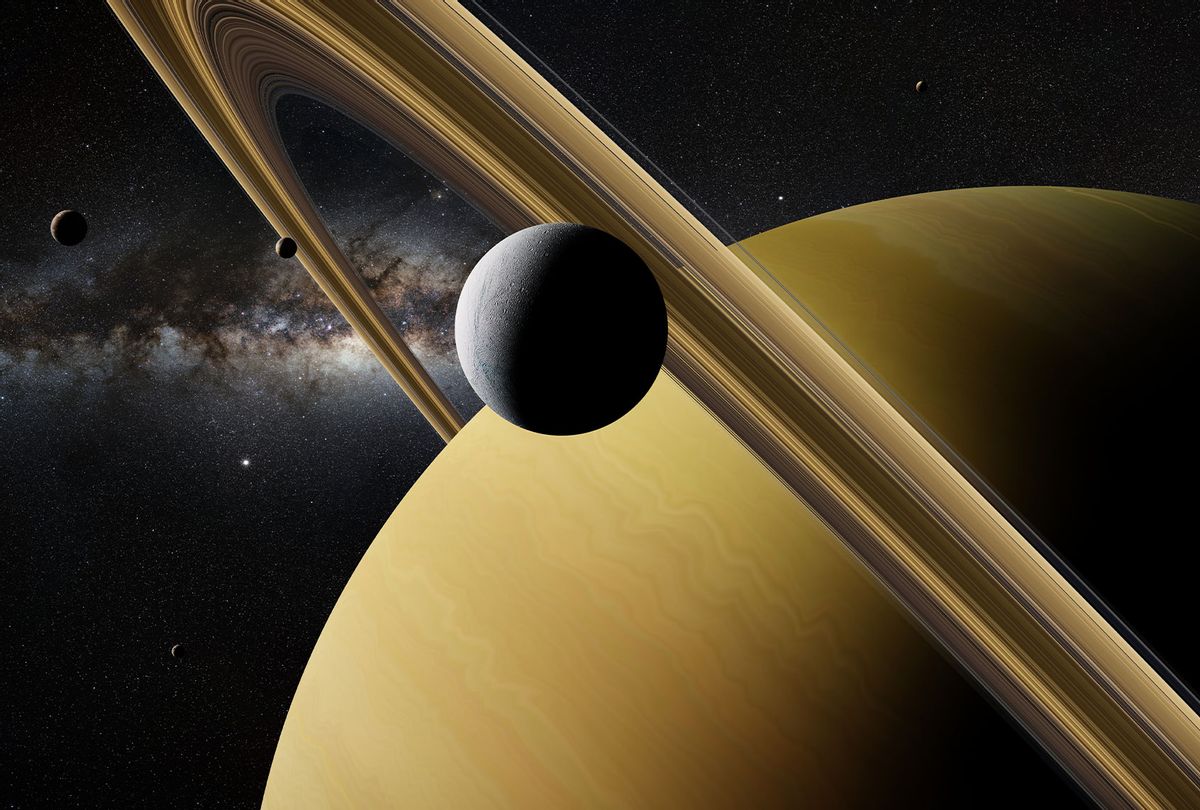In 2005, NASA's Cassini Saturn orbiter took images of Saturn's moon Enceladus, and discovered geysers blasting particles of water ice into space from fractures near the south pole. The observation led to speculation that there is a vast ocean tucked between the moon's core and its icy shell. Previously, the orbiter detected dihydrogen, methane and carbon dioxide at unexpected levels, leaving astrobiologists ruminating over the possibility that Enceladus could sustain life. But there were debates over the presence of methane.
Now, a new study takes the possibility of habitability one step further. Published in the journal Nature Astronomy, astronomers say there is strong evidence that hydrogen cyanide is present on Enceladus which is an essential molecule in forming amino acids, one of the most basic ingredients in life.
“Our work provides further evidence that Enceladus is host to some of the most important molecules for both creating the building blocks of life and for sustaining that life through metabolic reactions,” said lead author Jonah Peter, in a statement. “Not only does Enceladus seem to meet the basic requirements for habitability, we now have an idea about how complex biomolecules could form there, and what sort of chemical pathways might be involved.”
In addition to hydrogen cyanide, the researchers found that many of the organic compounds in the plumes were oxidized, suggesting that there could be multiple pathways to sustain life in the moon’s subsurface ocean. Researchers relied on math and statistical modeling to figure out the plume composition. Scientists say they’re far away from a definitive conclusion on whether or not there’s life on Enceladus, but they’ll keep probing.



Shares